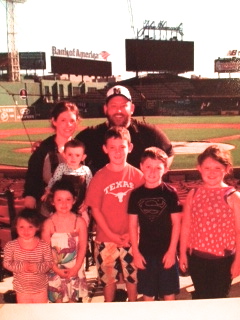Grapevine: Planning for the Next Dream Wine Adventure

In past columns, I’ve reported on my trips to several wine regions. Among my favorites have been the Tuscany, Umbria and Campania regions of Italy and the Napa, Sonoma and Central Coast regions of California.
Earlier this year I had the yearning for the next adventure, the next opportunity to taste barrel samplings deep in hand-carved wine caves, to caress grape-laden grapevines in sun-drenched vineyards, to sample ripe grapes as they were being prepared for the harvest crush, to rub soil and rocks between my fingers to understand the nutrient-poor stress placed on grapevines.
For several months I pored over my Life List (it sounds so much better than Bucket List) of wine regions. So many wine regions to visit, so much wine to enjoy. And then it hit me. Why not visit the country whose wines I consider some of the finest in the world but could never find the time to venture into its back country?
France. The land of turbulent history and perennial mystique. The more I considered this, the more paradoxes arose. France is the land of historic monuments and museums, fine cuisine and social stability–as well as the land of historic political unrest, a new generation fostering social change and home to one of the highest grossing McDonald’s in the world.
Nevertheless, I began considering my trip. In this column and the next, I offer my thought process, trip itinerary and travel report in the interest of aiding readers who have similar interests and desires.
If I had six months of free time I could visit each of the eight major wine regions that comprise the French wine experience. Alas, I did not. The best I could come up with was 10 days traversing the hills and vales of French wine country. My next decision point: which region or regions to single out? My choices included Champagne, Loire, Alsace, Burgundy, Bordeaux, Rhone Valley, Languedoc-Roussillon and Provence.
After pouring through the personal notes I had been accumulating for the last 10 years, I decided to seek input from my trusted advisers–and travel companions–my wife and our travel couple. The initial reaction:
“I don’t understand the wines–or the labels.”
“I can’t differentiate one producer from the next. Sometimes I can’t even find their name on the label.”
“The better wines are too expensive.”
After a tough sell, we compromised. Interspersed with French winery visits would be the cultural highlights on their lists: Paris, Renaissance castles and a stay in a medieval chateau.
With an expanded itinerary (14 days), the final details began to come together. We would visit three regions on this trip that held an allure for each of us: Champagne, Loire and Burgundy. Vague discussions of future trips and the other wine regions were put on hold.
The logic behind our final selections? As with many empirical analyses and research, the choices were, in the end, somewhat subjective.
Several regions didn’t produce wines of unanimous appeal. Other regions were too geographically disparate to visit in one trip. Other regions did not have the cultural allure to please each traveler.
The specific logic for selecting each region, our itinerary and my reports will be presented in more depth next week. The general logic:
The Champagne region is in close proximity to the cultural and romantic allure of Paris. Champagne the wine is a favorite of each traveler;
The Loire Valley is home to numerous Renaissance castles and lesser known world-class wines that don’t have wide distribution in the United States;
The Burgundy region is home to a number of the most highly regarded wines. I had to rationalize this choice with the culture-focused travelers, so I promised them a stay at a historic 14th century chateau with spiral staircases to guest rooms in towers previously occupied by nobility and monks. My logic worked, as visions of visits to Burgundian caves and barrel tastings danced in my head.
Next week, visits to amazing wine caves, historic landmarks–and great wines.
Nick Antonaccio is a 35-year Pleasantville resident. For over 15 years he has conducted wine tastings and lectures. He also offers personalized wine tastings and wine travel services. Nick’s credo: continuous experimenting results in instinctive behavior. You can reach him at nantonaccio@theexaminernews.com or on Twitter @sharingwine.

